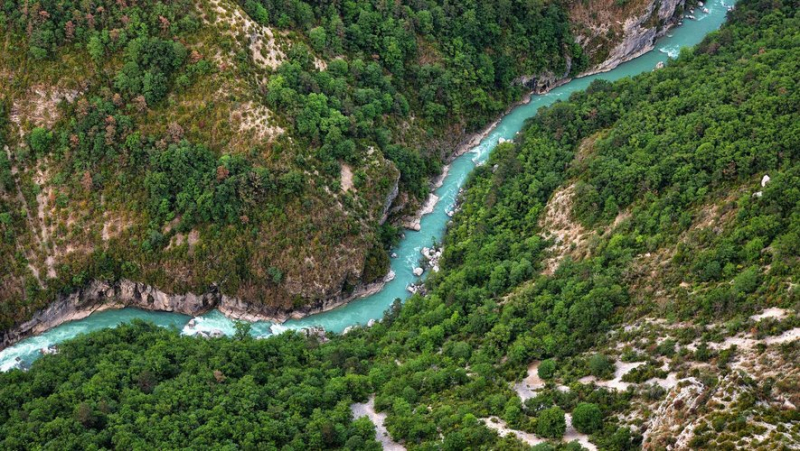“There is something wrong”: biodiversity in French rivers threatened, according to WWF

Les activités humaines ont multiplié les sources de dégradation: barrages, dragages et canalisations en tout genre, prélèvements excessifs, rejets de pesticides, d'engrais ou de polluants industriels… SusanneSchulz/Getty Images
The biodiversity of rivers and bodies of fresh water is threatened in France, according to an unprecedented report published Wednesday by the WWF: behind the virtual stability of populations for twenty years, lies the collapse of certain species of fish and birds such as trout or great crested grebe.
In a report published on the occasion of the International Biodiversity Day, the WWF wanted to establish a state of health of life in rivers in mainland France by publishing a " ;living rivers index" based on data from monitoring programs.
It concludes that there has been a decline of 0.4% in fish and bird populations observed over the past 20 years, despite the colossal sums spent – estimated at 500 billion euros for fisheries policy. ;water. Furthermore, less than half of the rivers are in good ecological condition: 43.1% in 2019, figure from water agencies taken up by the NGO.
"There is something wrong", observes Yann Laurans, WWF France program director, pointing to the ;#39;gap between the financial effort and the meager results obtained. And the slight decline in populations on average actually masks strong disparities.
"Today in the Seine, at the Pont de l'Alma, you find about six times as many ;fish species than in the 1960s. And this is true for most of the large rivers", specifies Yann Laurans, welcoming the progress of water systems; sanitation and treatment plants.
"Collapse" small streams
"But at the same time, we have a collapse in the quality of small rivers in rural areas because for 70 years now, we have pursued a policy of intensification of agricultural practices and artificialization", he points out.
Human activities have multiplied the sources of degradation: dams, dredging and pipelines of all kinds, excessive sampling, discharge of pesticides, fertilizers or industrial pollutants…
Two emblematic freshwater species illustrate the scale of the problem: the great crested grebe – a large diving bird with a black crested – and river trout have experienced a drop in their population by 91 and 44% respectively in 20 years.
Conversely, invasive species are experiencing threatening development: catfish, coypu, Louisiana crayfish… To improve the situation, one of the WWF's priorities is the preservation of wetlands in France . "We are relaunching our land acquisition strategy" in these areas, "a tool vital for preserving spaces", indicates Jean Rousselot, fresh water manager of the NGO.
"Disappearing"
The WWF is ready to spend 5 million euros for this in mainland France, hoping to be able to increase this initial investment by attracting funding from the State, foundations, etc. . The land will then be preserved or dedicated to sustainable activity.
A strategy which is not entirely new: in the 1980s, the WWF had, for example, contributed to the creation of the Chérine (Indre) nature reserve in Brenne, & ;quot;land of a thousand ponds" in central France dedicated to fish farming for centuries, where the association owns land.
It is now also leading a policy of "payments for ecosystem services" consisting of paying fish farmers for virtuous practices . They limit, for example, the breeding of carp, a species which harms the development of vegetation, or move away from intensive breeding practices such as artificial feeding.
We can observe in the region the mustac tern, a seagull-like bird, or the pond turtle, a freshwater turtle whose legs are covered with small yellow spots.
"It'is a species that is disappearing with the disappearance of its habitat, global warming and predation", carried out by wild boars or foxes, explains Albert Millot, director of the Chérine nature reserve, co-managed by the Bird Protection League (LPO). "There are no longer many territories where it survives" in the country, he insists, emphasizing the importance of the efforts made to preserve it.




